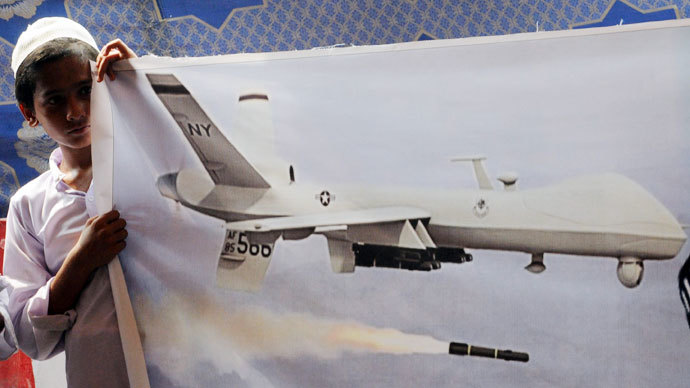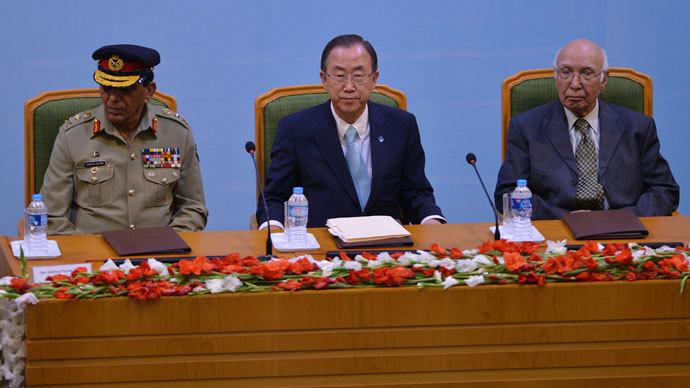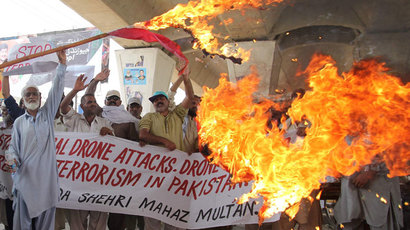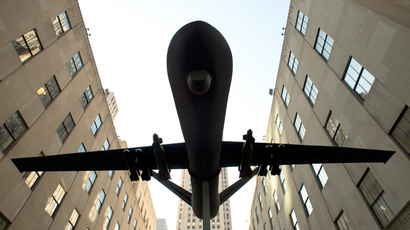No to killer drones: UN chief calls for UAV surveillance use only

UN chief Ban Ki-moon said drones should be used for surveillance only, and those countries using armed UAVs must act within international law. Ban delivered his comments in Pakistan, where US drone strikes have killed thousands, including many civilians.
“The only goal of unarmed aircrafts is photography. Their use
as a weapon must be subject to international humanitarian
law,” the UN Secretary General was quoted as saying on
Tuesday by AFP.
He noted that his words represented a “very clear
position” from the UN, stressing that the organization
expects those countries deploying drones to follow the law.
“Every effort should be made to avoid mistakes and civilian
casualties,” he added.
Ban addressed the controversial aircraft while visiting the
National University of Science and Technology in Islamabad, where
he cut a symbolic ribbon opening the university-based
International Center for Peace and Stability.
Ban’s words were met with applause, as Pakistani officials and
activists have repeatedly condemned drone strikes on the
country’s territory as a violation of its sovereignty and
international law. A high court in Pakistan decided in May that the US-launched attacks should
be considered war crimes and advised the country’s Foreign
Ministry to file a resolution against them in the UN.

The strikes, hundreds of which have been carried out by the CIA
since 2004, are viewed by Washington as an important tool in the
fight against Al-Qaeda and Taliban militants. The US has long
claimed that such targeted assassinations result in
“exceedingly rare” civilian fatalities.
But a recent report by the British Bureau of Investigative
Journalism, which is said to be based on a leaked data from
internal documents compiled by Pakistani officials, has revealed
that one in five victims of US precision strikes in the period
from 2006 to 2009 were confirmed as civilians.
The leaked classified data builds upon 75 CIA drone strikes in
northwest Pakistan, stating that of 746 people killed in those
strikes, 147 were identified as civilian victims, including 94
children.
The US Secretary of State John Kerry on August 1 said that President Obama has “a very real
timeline” of drone strikes in Pakistan, adding that he hopes
the attacks will soon end. Earlier this year, a senior US senator
Lindsey Graham admitted that about 4,700 people have been
killed in American targeted killings, not specifying the extent
of civilian casualties.
Meanwhile, Ban Ki-moon’s visit also came amid heightened tensions
between Pakistan and India over the disputed territory of Kashmir
and reports of clashes along the Line of Control – the de facto
border monitored by UN observers that divides the region.
While Pakistan and India have been trading accusations of
cross-border fire, Sharif also attempted to lower the temperature
of previously published statements, calling on his neighbor for a
“new beginning” in relations.















